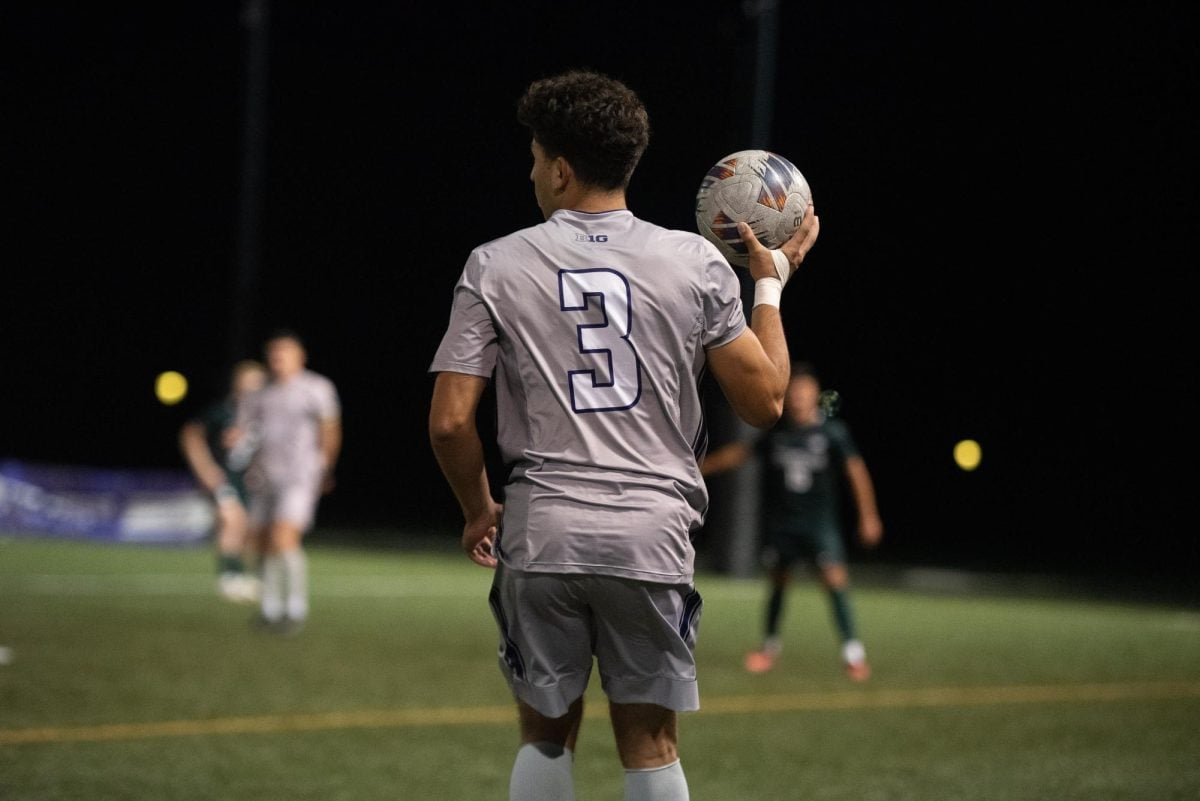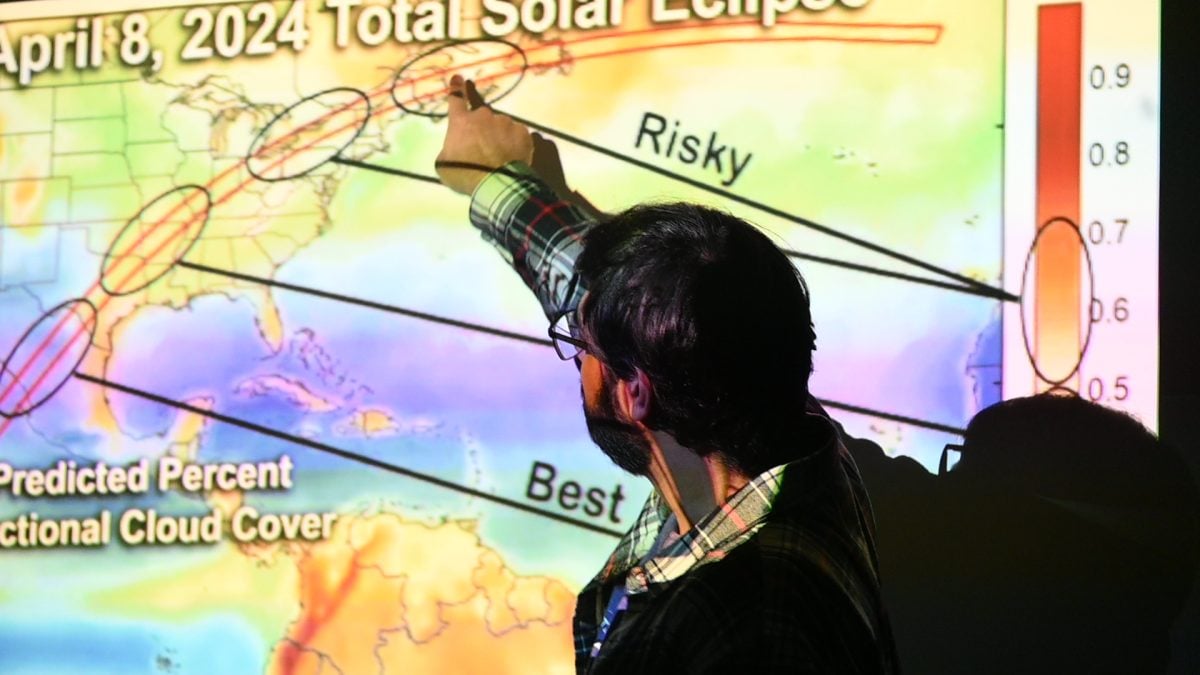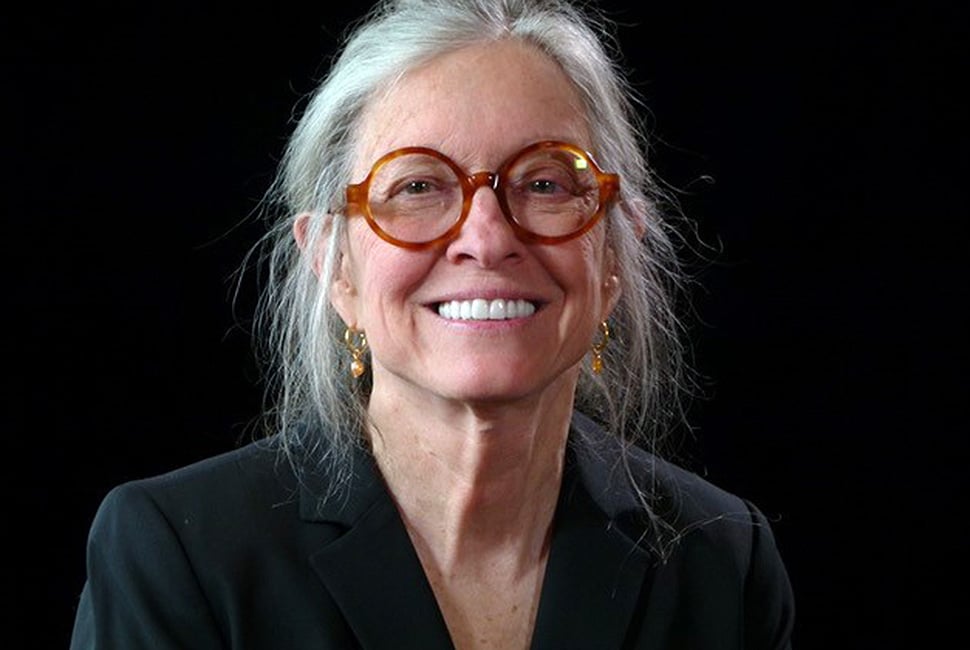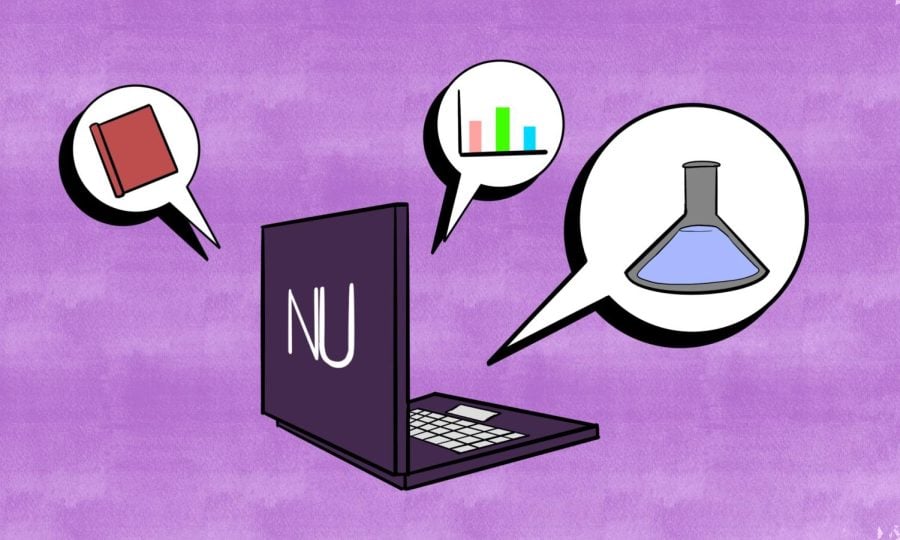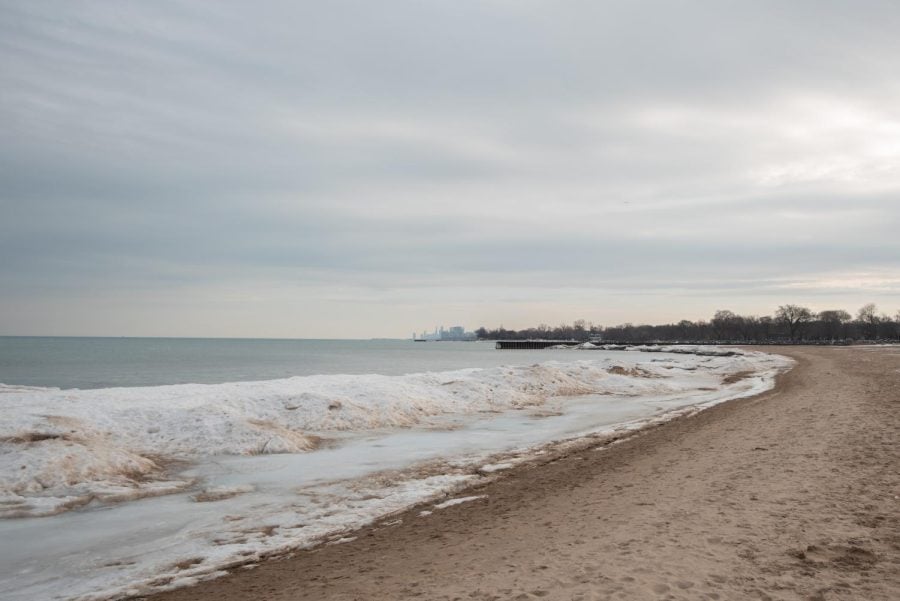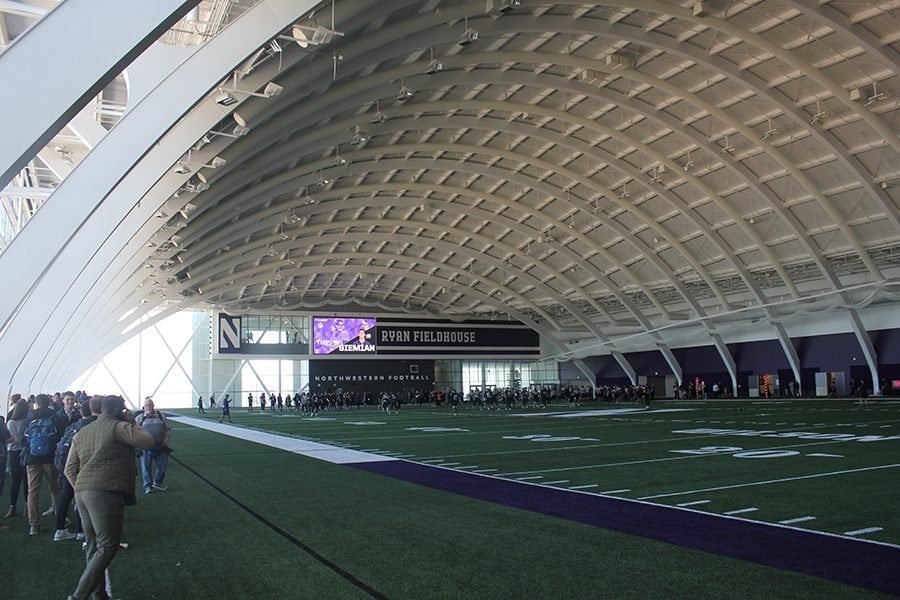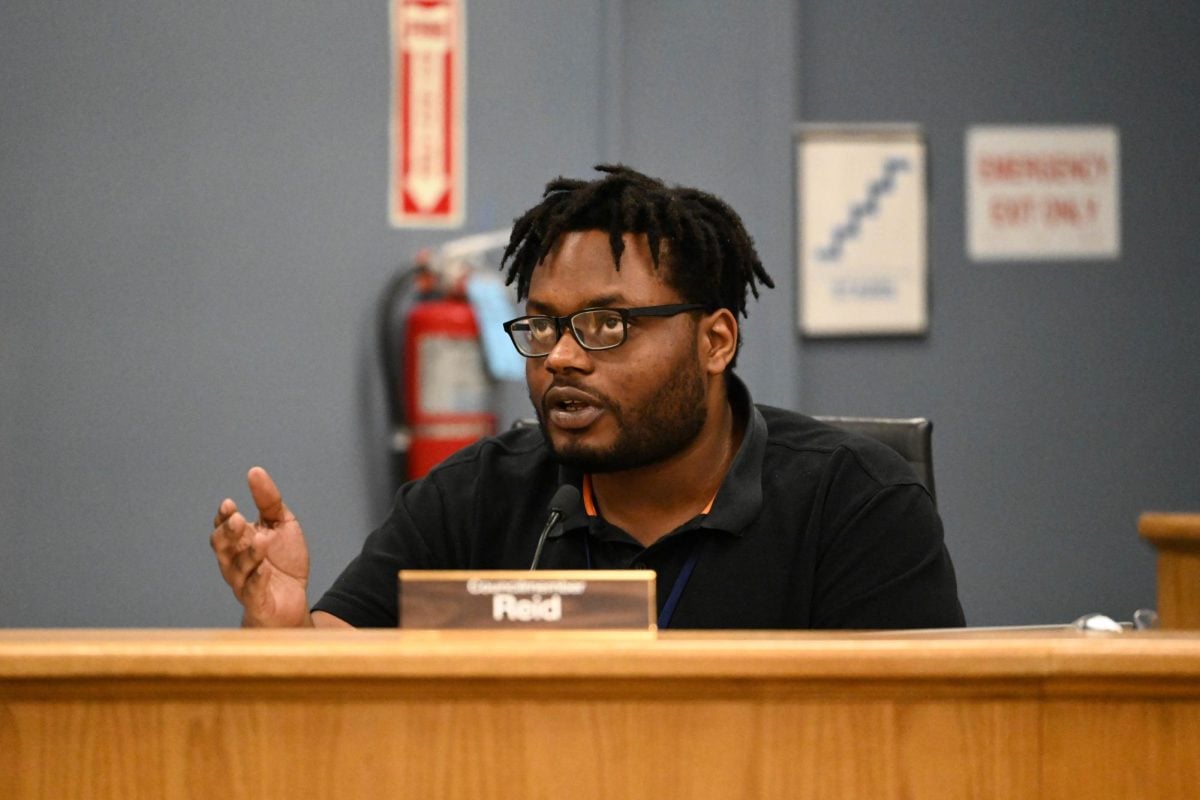As a practicing Muslim on the men’s soccer team, Weinberg junior Ibrahim Obeid juggles his training schedule, schoolwork and Ramadan fasts — between 29 to 30 days without food or drinks from dawn to dusk. The team jokes that he plays better during Ramadan because “God is with him.”
“I tend to come out of that month feeling like a better person,” Obeid said. “I feel like I’ve grown.”
“Sawm,” Arabic for fasting, is one of the Five Pillars of Islam. Ramadan lands on the ninth month of the Islamic calendar and is from around March 11 to April 9 this year. Muslims begin with “suhoor,” the pre-dawn meal, and they break fast with “iftar,” the post-sunset meal.
There are also five designated prayer times throughout the day: Fajr, Dhuhr, Asr, Maghrib and Isha.
SESP junior Salma Alsikafi, captain of NU’s club tennis team, observes Ramadan while practicing tennis twice a week. She said she’s mentally stronger knowing she can train without usual motivations like food.
“I don’t think I could do that any other time of the year but during Ramadan,” Alsikafi said.
Previous studies found that athletes may lose muscle mass when exercising while fasting, according to Faiza Kalam, an assistant professor at Ohio State University’s Division of Cancer Prevention and Control.
Kalam pointed to research by Hamdi Chtourou, an assistant professor in sports science at University of Sfax, which suggests this may not be true due to the “nocebo effect.” The idea refers to the phenomenon where, if athletes mitigate training impacts, like heat and hydration, fasting only impacts them if they believe it will.
“Those who did not have that belief didn’t have any impact on their training,” Kalam, who attended Chtourou’s talk, said.
Kalam and NU Athletics performance dietitian Petra Rack both said they recommend cooling down with water cloths or decreasing sun exposure and salt intake to prevent fluid loss.
Since Ramadan meals fall outside dining hall hours, NU Athletics offers to-go boxes packed with food high in protein and complex carbohydrates that prioritizes what student athletes like to eat, Rack said.
“Even if it is just rice, pasta and potatoes, it’s whatever that they’re going to want because that’s their one time to eat throughout the day,” Rack said.
Both Obeid and Alsikafi compete during Ramadan. Training 20 hours per week, Obeid works with the soccer team’s staff to determine schedule alternatives, like later weightlifting times, longer breaks or shortened playing time during his team’s spring matches.
Gaye Diadie, an assistant coach for NU men’s soccer, said the coaching staff prioritizes the religion and safety of their student athletes.
“We’re very big on giving a voice to the habit of practicing fasting, whether they’re Muslim or from other religions, and making sure that everything that they do, they feel that they can do it,” Diadie said.
With tennis nationals in Georgia, Alsikafi said she won’t fast during her games since travelers are exempt.
Growing up fasting, Obeid sought support from family. Here, Obeid said he turns to his NU community and has grown to appreciate his faith even more.
“Most of the people are fasting in the same household, so it’s easier socially,” Kalam said. “If you see people eating around you and you’re fasting, it might be more challenging.”
Also Muslim, Diadie is fasting with Obeid this Ramadan and has provided tips that have helped him fast while training.
Diadie added that the athletic department maintains and values an open line of communication with those fasting during Ramadan.
“That shows that the diversity we have at NU is very important,” Diadie said. “Just getting the support from people that are not even from your religion and their willingness to help you, I think that’s the beauty of our department.”
Deng Deng Kur (Communication ’23) played soccer for the ’Cats from 2019 to 2022 and fasted three days in previous years with Obeid in solidarity.
Kur grew up around a prevalent Muslim community and said he’s always resonated with the significance of the month and cherished the bonds built around it.
“We’d always do it together — that was a really important part of it,” Kur said. “It was just cool to actually experience it and do it with somebody who you cared about and valued a lot too.”
Email: [email protected]
X: @kelleylu_
Related Stories:
— McSA fosters community, celebrate cultures with Ramadan iftars
— National Nutrition Month at Northwestern aims to seat ‘nutritious and delicious at the same table’
— Olympic fencer Ibtihaj Muhammad discusses representation, athletic career











